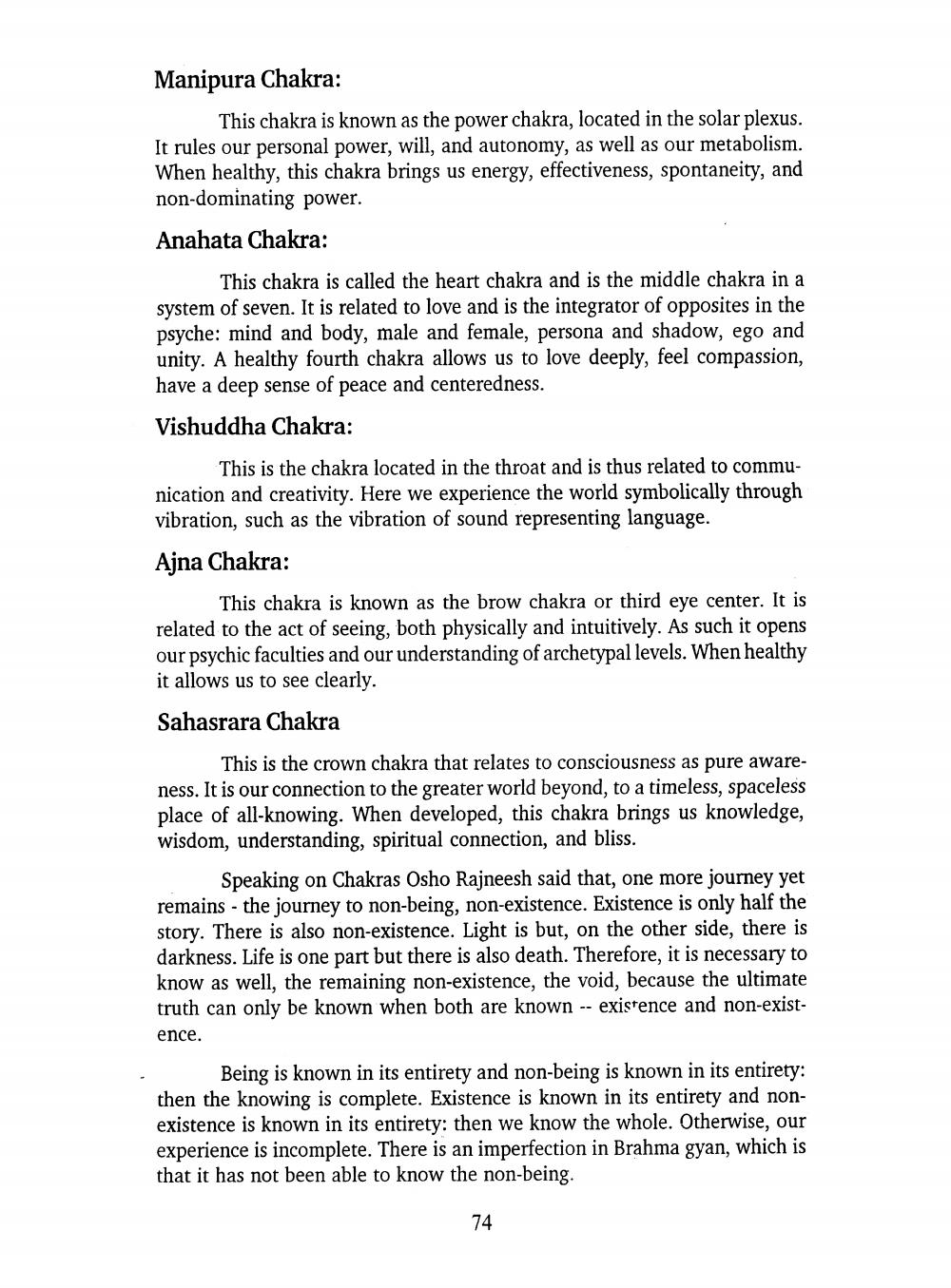________________
Manipura Chakra:
This chakra is known as the power chakra, located in the solar plexus. It rules our personal power, will, and autonomy, as well as our metabolism. When healthy, this chakra brings us energy, effectiveness, spontaneity, and non-dominating power.
Anahata Chakra:
This chakra is called the heart chakra and is the middle chakra in a system of seven. It is related to love and is the integrator of opposites in the psyche: mind and body, male and female, persona and shadow, ego and unity. A healthy fourth chakra allows us to love deeply, feel compassion, have a deep sense of peace and centeredness.
Vishuddha Chakra:
This is the chakra located in the throat and is thus related to communication and creativity. Here we experience the world symbolically through vibration, such as the vibration of sound representing language. Ajna Chakra:
This chakra is known as the brow chakra or third eye center. It is related to the act of seeing, both physically and intuitively. As such it opens our psychic faculties and our understanding of archetypal levels. When healthy it allows us to see clearly.
Sahasrara Chakra
This is the crown chakra that relates to consciousness as pure awareness. It is our connection to the greater world beyond, to a timeless, spaceless place of all-knowing. When developed, this chakra brings us knowledge, wisdom, understanding, spiritual connection, and bliss.
Speaking on Chakras Osho Rajneesh said that, one more journey yet remains - the journey to non-being, non-existence. Existence is only half the story. There is also non-existence. Light is but, on the other side, there is darkness. Life is one part but there is also death. Therefore, it is necessary to know as well, the remaining non-existence, the void, because the ultimate truth can only be known when both are known -- existence and non-existence.
Being is known in its entirety and non-being is known in its entirety: then the knowing is complete. Existence is known in its entirety and nonexistence is known in its entirety: then we know the whole. Otherwise, our experience is incomplete. There is an imperfection in Brahma gyan, which is that it has not been able to know the non-being.
74




